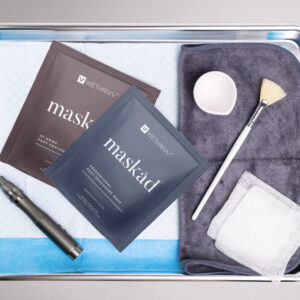
How Different Climates Affect Face Mask Application
Understanding how different climates affect face mask application is essential for maintaining healthy, glowing skin year-round. Your skincare routine needs to adapt to environmental changes to maximize the benefits of your favorite face masks. Whether you live in a humid, arid, cold, or tropical climate, our guide will help you adjust your face mask application for optimal results.
Face Masks and Humid Climates
Humid climates can be both a blessing and a curse for your skin. The moisture in the air helps to keep your skin hydrated, but it can also lead to excess oil production and clogged pores.
Tips for Humid Climates:
- Clay Masks: Use clay masks to absorb excess oil and detoxify your skin. Our [Brand’s] Purifying Clay Mask is perfect for this.
- Frequency: Apply clay masks 2-3 times a week to control oil without over-drying your skin.
- Hydration: Opt for lightweight, hydrating masks to maintain moisture balance without adding oiliness. Try our Hydrating Gel Mask with Aloe Vera for a refreshing feel.
Face Masks and Arid Climates
Arid or dry climates can strip your skin of moisture, leading to dryness, flakiness, and irritation. Hydration is key in these environments.
Tips for Arid Climates:
- Hydrating Masks: Use masks with ingredients like hyaluronic acid, glycerin, and ceramides. Our Intensive Moisture Mask is designed to provide deep hydration.
- Frequency: Apply hydrating masks 3-4 times a week to combat dryness.
- Oils and Butters: Look for masks containing nourishing oils and butters, such as shea butter and jojoba oil, to lock in moisture.
Face Masks and Cold Climates
Cold climates can be harsh on your skin, leading to redness, irritation, and increased sensitivity. Protecting and soothing your skin is crucial.
Tips for Cold Climates:
- Soothing Masks: Use masks with calming ingredients like chamomile, oatmeal, and honey. Our Soothing Honey Mask is ideal for calming irritated skin.
- Frequency: Apply soothing masks 2-3 times a week to reduce inflammation and redness.
- Barrier Repair: Look for masks that support the skin barrier with ingredients like ceramides and niacinamide.
Face Masks and Tropical Climates
Tropical climates, characterized by high temperatures and humidity, can cause your skin to become oily and prone to breakouts.
Tips for Tropical Climates:
- Balancing Masks: Use masks that balance oil production and provide gentle exfoliation. Our Balancing Tea Tree Mask helps control oil and prevent breakouts.
- Frequency: Apply balancing masks 2-3 times a week to keep your skin clear and fresh.
- Antioxidants: Look for masks with antioxidants like vitamin C and green tea to protect your skin from environmental damage.
General Tips for All Climates
Regardless of the climate you live in, there are some universal tips to follow for effective face mask application:
- Cleanse First: Always start with a clean face to ensure your mask can penetrate your skin effectively.
- Follow Instructions: Use the mask as directed on the packaging to avoid overuse or underuse.
- Patch Test: If you have sensitive skin, perform a patch test before using a new mask to avoid adverse reactions.





